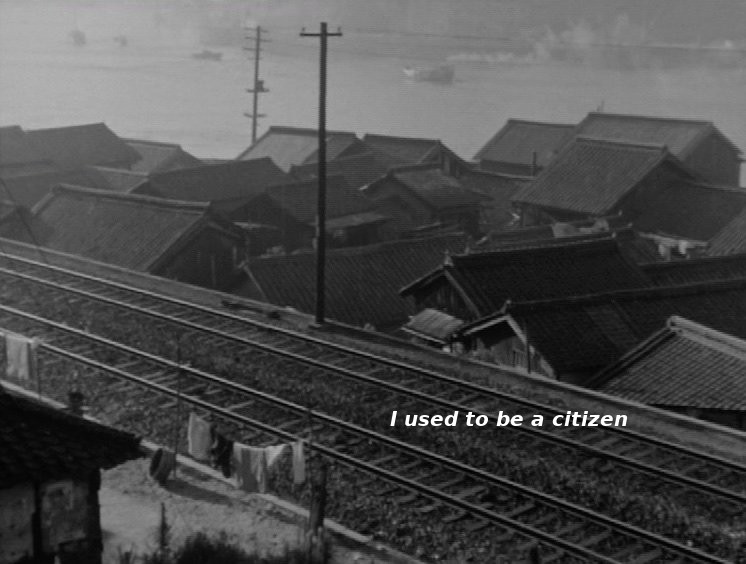
The sinking of the Titanic
FIFTH CANTO
Take what they have taken from you,
take by force what has always been yours,
he shouted, freezing in his undersized jacket,
his hair streaming beneath the davits,
I am with you, he shouted,
what are you waiting for? Now
is the time, pull down the barriers,
throw the bastards overboard
with all their trunks, dogs, lackeys,
the women as well, and even the kids,
use brute force, use knives, use your bare hands.
And he showed them the knife,
he showed them his bare hands.
But the steerage passengers,
emigrants, all of them, stood there,
in the dark, took off their caps
and listened in silence to what he said.
When do you want to take your revenge
if not now? Or do you mean to say
that you cannot bear to see blood?
What about the blood of your children,
what about your own? And he scratched his face
and cut his own hands
and showed them the blood.
But the steerage passengers
listened to him and did not move.
Not because he did not speak Lithuanian
(he didn’t), nor because they were drunk
(they had long since emptied
their ancient bottles,
wrapped in coarse handkerchiefs),
nor because they were hungry
(though they had not eaten much):
It was something else. It was
hard to explain.
They understood quite well
what he said, but they did not
understand him. His words
were not their words. Worn
by other fears and by other hopes,
they just stood there patiently
with their carpetbags, their rosaries,
their rickety children
at the barriers, making room
for others, listening to him, respectfully,
and waiting until they drowned.
Hans Magnus Enzensberger, 1969-1977
The breaking up of the ship, the Oskawa, by her crew
“Early in the year 1922
I put on board the six-thousand-ton freighter OSKAWA
Built four years previously for two million dollars
By the United States Shipping Board. In Hamburg
We took on a cargo of champagne and liquor for Rio.
Since the wages were bad
We felt the need to drown
Our troubles in alcohol, so
Several cases of champagne found
Their way into the crew’s quarters. In the officers’ quarters too
Even on the bridge and in the chartroom
Just four days out of Hamburg you could hear
The clinking of glasses and the singing
Of sailors with no care in the world. Several times
The ship veered off course. Yet still
Favoured by all kinds of lucky circumstance, we reached
Rio de Janeiro. When we unloaded, our skipper
Counted out one hundred fewer cases of champagne. But because he could
Find no better crew in Brazil
He had to make do with us. We loaded
Over a thousand tons of frozen meat for Hamburg.
Just a few days back at sea we were overcome once more by our troubles
The bad wages, the uncertain provision for old age, and
One of us, in his despair, poured
Too much oil in the furnace, and the fire
Burst out of the funnel all over the decks, so that
The boats, bridge and chartroom were destroyed. So as not to sink
We helped put out the fire, but
Grumbling about the bad wages (the uncertain future!), we didn’t take
So much care to salvage what was left of the decks. That would be
Easy to rebuild, at some expense, and they had
After all, saved themselves enough on our wages.
Too much exertion in midlife
Ages a man quickly and unfits him for life’s struggle.
So one fine day, because we needed to conserve our energies
The dynamos, which need the sort of care
That apathetic folk cannot render, burnt out. Now we were
Without light. At first we used oil lamps
So as not to collide with other ships, but
A tired mate, discouraged by thoughts
Of a joyless old age, threw the lamps, to save work
Overboard. About this time, just off Madeira
The meat began to stink in the refrigerated hold
Because of the failure of the dynamos. Regrettably
A distracted crewmember, instead of the bilge
Pumped out nearly all the fresh water. There was enough to drink
But no longer enough for the boilers. So we had to
Use saltwater for the engines and that in turn
Blocked up the pipes with salt. Cleaning them out
Took quite a while. And it had to be done seven times.
Then there was a breakdown in the machine room. Grinning
We patched it up. The Oskawa
Limped slowly into Madeira. There
There was no facility to undertake repairs on the scale
That were now already necessary. We simply took on
Water, some lamps and a little oil for the lamps. The dynamos
Were, it appeared, completely ruined, and consequently
The cooling system didn’t work and the stink
Of the rotting meat became intolerable for our
Frayed nerves; the skipper now
Only walked the decks armed with a revolver — a symbol
Of hurtful distrust! One of us, finally
Enraged by this unworthy treatment
Diverted a shot of steam into the refrigeration pipes, so that the damn meat
Would at least be cooked. That afternoon
The whole crew sat down and painstakingly worked out
How much this cargo would cost the United States. Before the end of the voyage
We managed to excel ourselves: off the coast of Holland
We suddenly ran out of fuel oil, so that
At considerable expense, we had to be towed into Hamburg.
The stinking meat caused our skipper a load more trouble. The ship
Went straight to the boneyard. Any child, we thought
Could see that our wages had
Really been too miserly.”
Bertolt Brecht, 1935
Ad astram
I
Spavaj, u redu, važi, spavaj, al bar nešto sni,
recimo, krilate vrtove; recimo, rep bez mere;
pa najzad, i sve sveocate venere stare ere,
ta, i snovi su liv u kojem bogovska misao vri.
Jer, vetar kojim se ovo nesano poglavlje zače;
trepetne je lepote, na pluća nesvodljive;
brzine što je nema ni prvi trzaj šljive,
il tresak vajatskih vrata, ženik kad ih se tače.
Snovi, za koje oni biljani baš mnogo ne mare,
luzima, barama, osuv nizove trošnih kuća;
bez traga, bez dima, ledenih još u svanuća,
drže ljiljan i lokvanj prekonoć da ne ostare.
Šta da se radi tamo, gde samo zlosti rade,
i vaj pomnožen s vajem ravan je odsustvu nade.
II
Spavaj, niko ti ne smeta, spavaj, al bar nešto sni,
recimo, koliko robinja imaju ružičini dasi;
pa najzad, i kakve šubare nakrive Kucovlasi,
Šta, i snovi su voćke s kojih zvezdani plod zri,
Jer, na Zemlji zemljoverci, i noći velikoga kašlja,
starinska lira već puca na dve izlišne usne;
a kad, vas boje plikova, sveža kiša pljusne,
samo se duga nadnese iznad dremeža buvovašlja.
Vine se katkad košava, svečanost poletnih ptića,
raznese raskošne naslage trajanja i treme;
i kao krilati baldahin, il podmlađeno vreme,
ukne: Dubina Zemljine kore sve plića i plića,
o čemu da pevaš kad već i lavež nebesima brodi,
repata pesma Parnase, zvezdare prevashodi.
III
Spavaj, dobro je to po zdravlje, spavaj, al bar nešto sni,
recimo, rodni kraj da čami, vene i stari;
pa, kao odjednom nikoše zvezdani pečalbari,
a snove, brže no gromovi raznose već i psi.
Jer, kročih na tle odzvukom starih niskih ljaga,
kolenom ne osetih nikakve vezivne varke;
al, kažu, rđaju zubi, a prsa ko šišarke
bogovsko nebo kad se zri jedino s nizijskih vlaga.
Lažu, nizijo plodna ženo, lažu da je bolje gore,
i da zlost i pakost riju jedino tvoje lice;
lažu, jer samo na tebi niču aprilske trepavice,
iako dremeži bara zrače sve tvoje jesenje pore.
Šta li se rodi tamo gde kuju bogovske bajke,
zvezdani snovi ne mru s lavežom Bala-Lajke?
Vladan Stojanović Zorovavelj
Sì amico al freddo sasso è ‘l foco interno
So kindly to the cold stone is the fire within it
that if, drawn out from it, the flame surrounds it
so it’s burnt and shattered, it lives in another form,
itself binding others eternally in place.
Thus, if it survives the kiln, it can defeat
summer and winter, and claim a higher price than before,
as a soul, purified, returns from hell
to be among the high, worthy others in heaven.
If, drawn out from me in this way, the fire
that plays within me secretly, dissolves me,
burnt and extinguished I can have further life.
For, if I live, turned into smoke and dust,
once hardened by the fire I’ll be immortal;
by such gold, not by iron, am I struck.
Michelangelo Buonarroti, c1542

